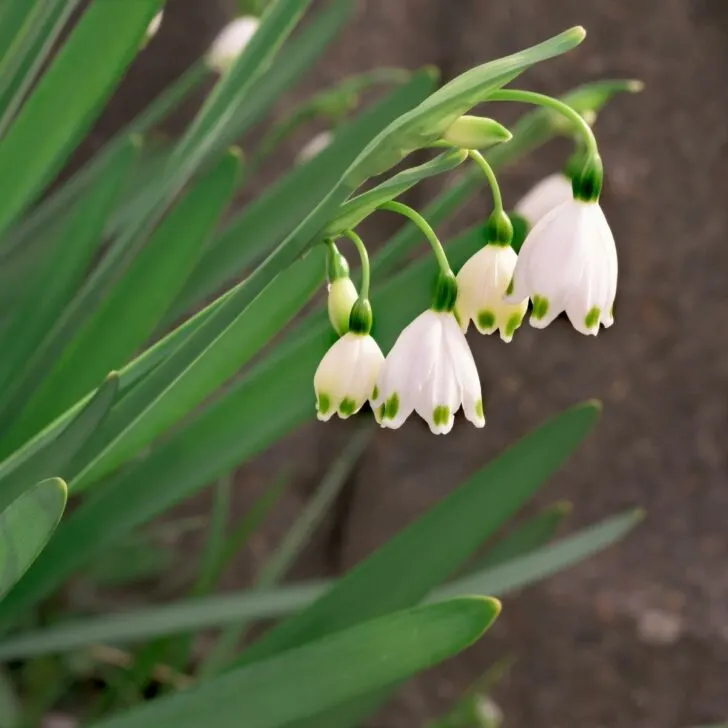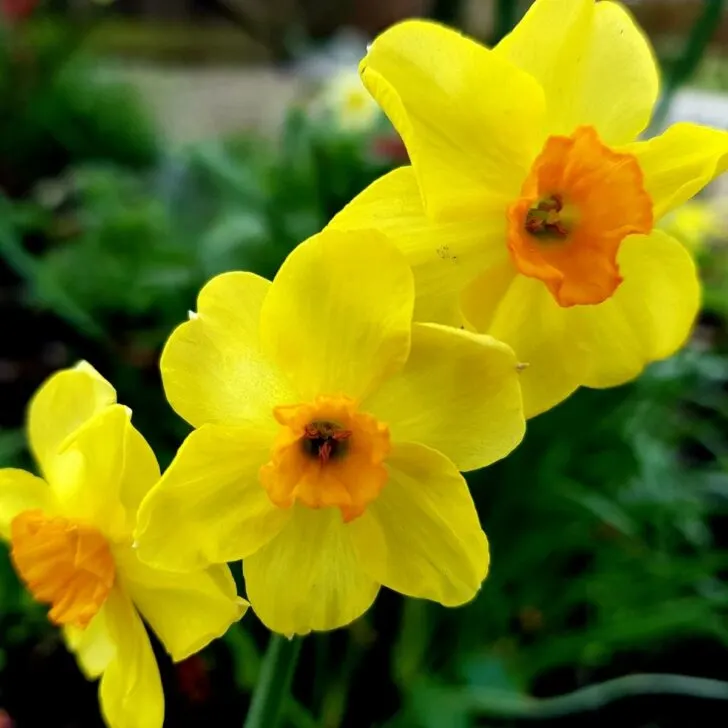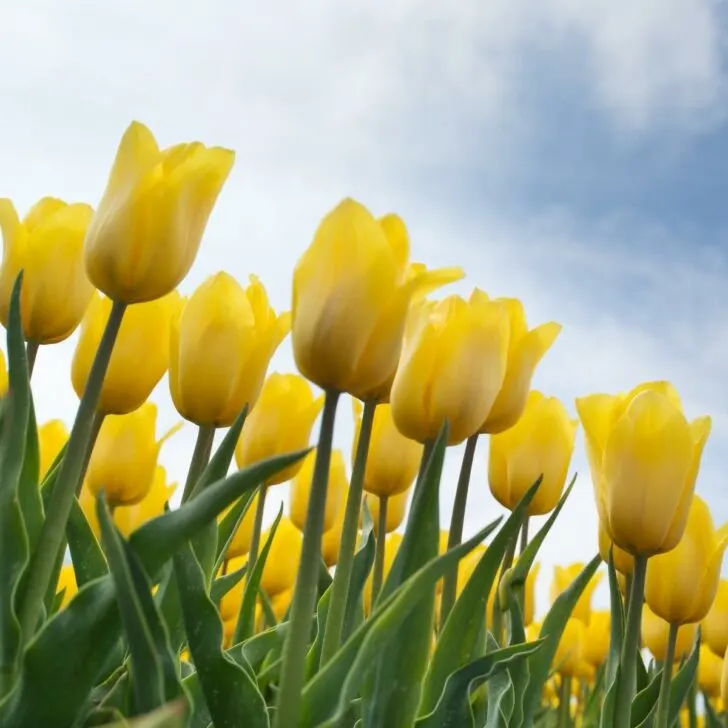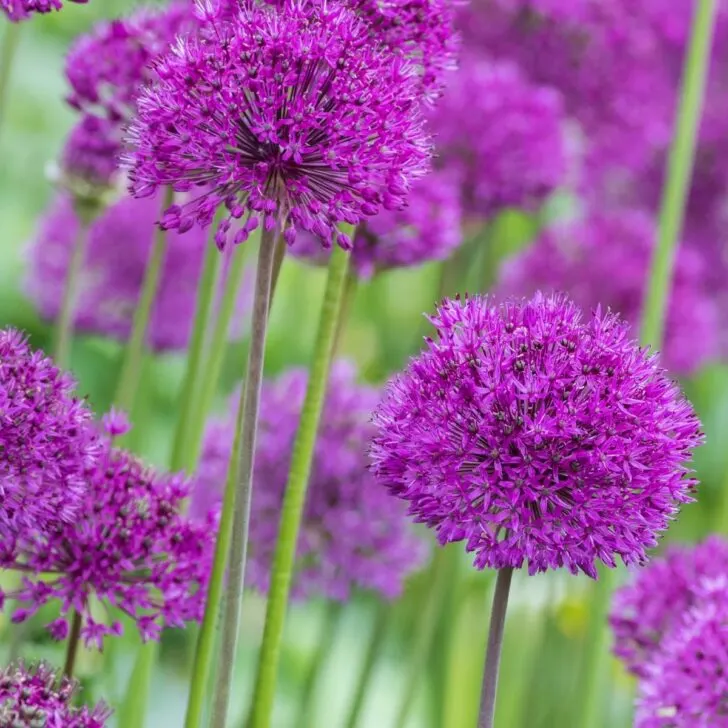Learn how to plant crocus bulbs for a vibrant, early spring garden! This step-by-step guide covers timing, spacing, and planting in pots.
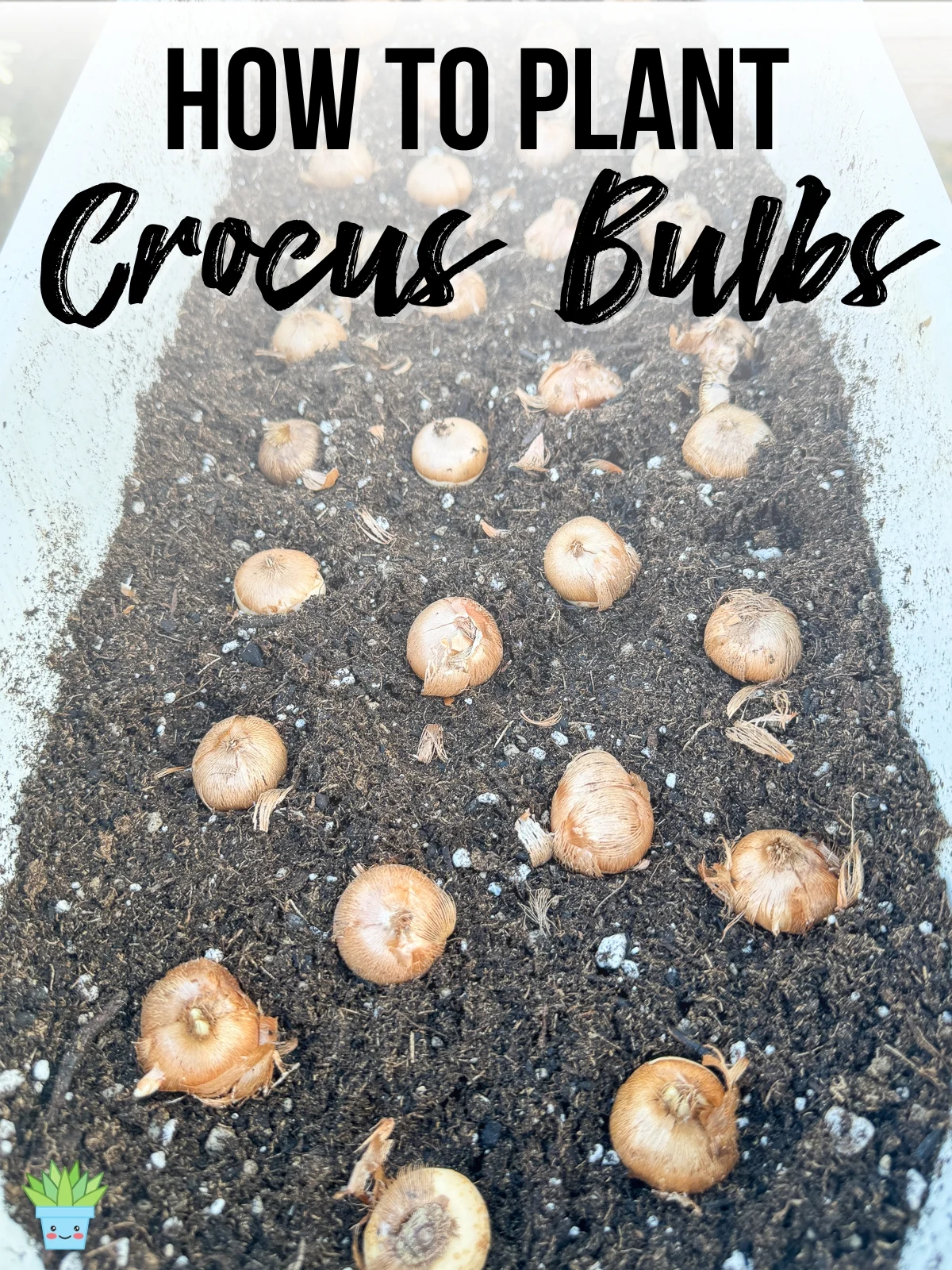
Crocuses offer a splash of color when most plants are still in their winter slumber. These low-maintenance flowers bloom in late winter or early spring, making them one of the first signs that warmer days are coming.
But in order to enjoy these beautiful flowers, you need to plan ahead! Crocus bulbs (which are called corms) need to be planted in the fall to get the necessary chill hours to sprout in February or March.
In this article, I'll show you how to plant crocus bulbs in the ground and in pots. We'll go over the proper depth and spacing for both situations so that you can ensure a gorgeous display!
This post contains affiliate links for your convenience. Purchases made through these links may earn me a small commission at no additional cost to you.
Crocus at a glance
| Plant type | Perennial |
| Best time to plant | Fall (September - November) |
| Growing Zone | Zones 3-8 |
| Location | Full to partial sun, well-drained soil |
| Soil Temperature | Below 60°F (15.5°C) |
| Hole Depth | 2-3 inches deep (2-3x height of bulb) |
| Bulb Spacing | 3-4 inches apart (in ground) 1-2 inches apart (in pots) |
| Bulb Orientation | Pointy side up |
| Care | Water after planting, and as needed if winter is dry. Fertilize only if soil is poor. |
| Common Pests | Squirrels, rabbits |
When to plant crocus bulbs
The best time to plant crocus bulbs varies depending on your growing zone, but anytime between September and November is generally a safe bet. This allows the bulbs enough time to establish roots before winter hits.
You'll also want to check the soil temperature. A soil thermometer can come in handy for this, and you're aiming for a temperature below 60°F (15.5°C). Soil that's too warm can trick the corms into thinking it's time to sprout!
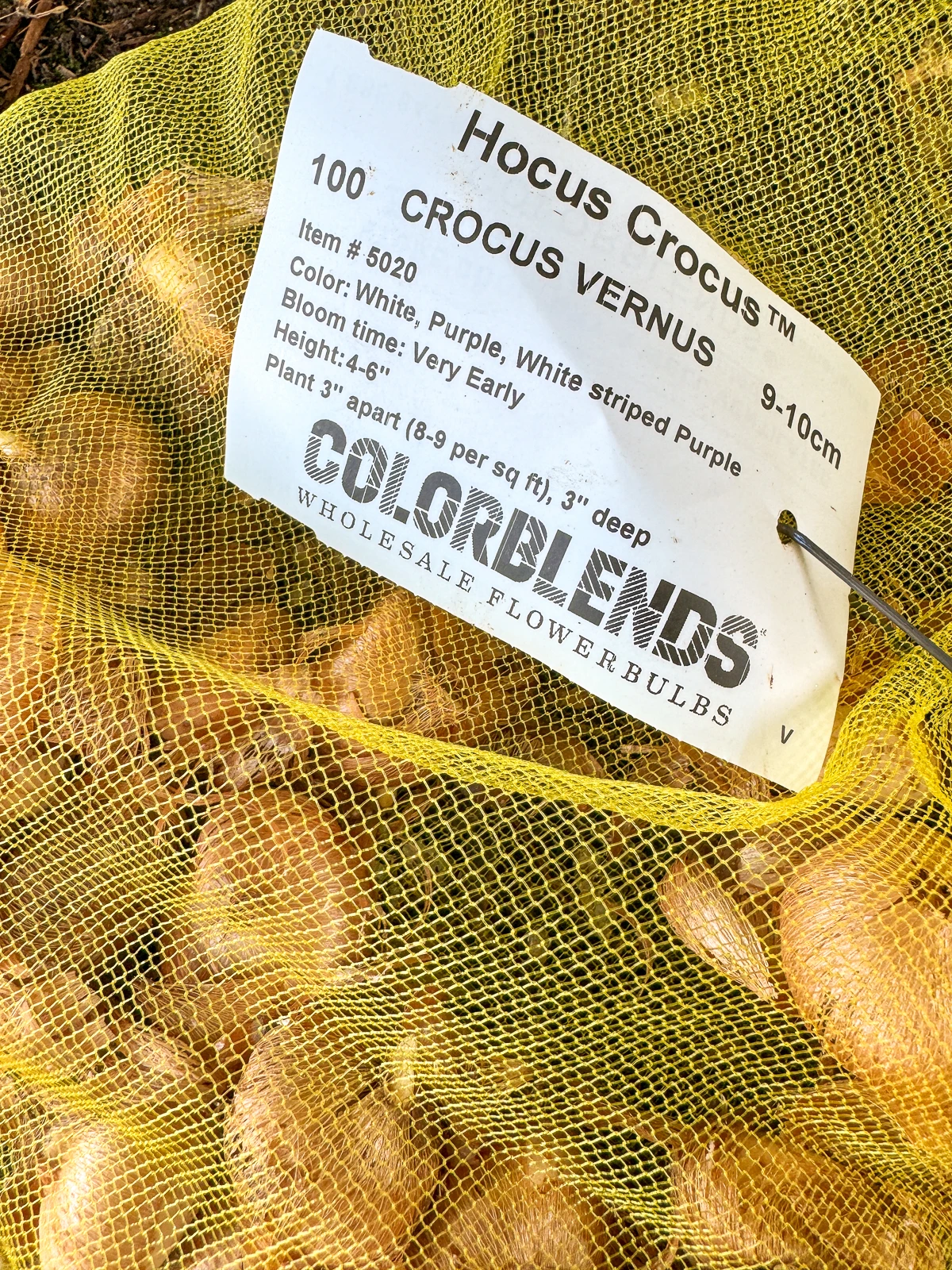
Here in Seattle (zone 8b), I'm planting 200 of the Hokus Crocus mix from Colorblends in late October. After this week, our daytime temperatures will drop below 60°F and the rains start up again, so it's a race to get all my bulbs in the ground before everything turns to mud!
Choosing the right location
Crocus corms aren't super picky, but they do best in well-drained soil. Poor drainage can lead to rot, and we don't want that! Our soil is quite sandy, so even with our wet winters, bulbs tend to do fine.
You'll get better blooms if they're positioned in full sun, but partial shade will also work. Last year, I planted crocus bulbs in front of this rock at the corner of the garden. The ones on the east side with more sun bloomed earlier and bigger than the ones to the north, which were shaded by the rock.
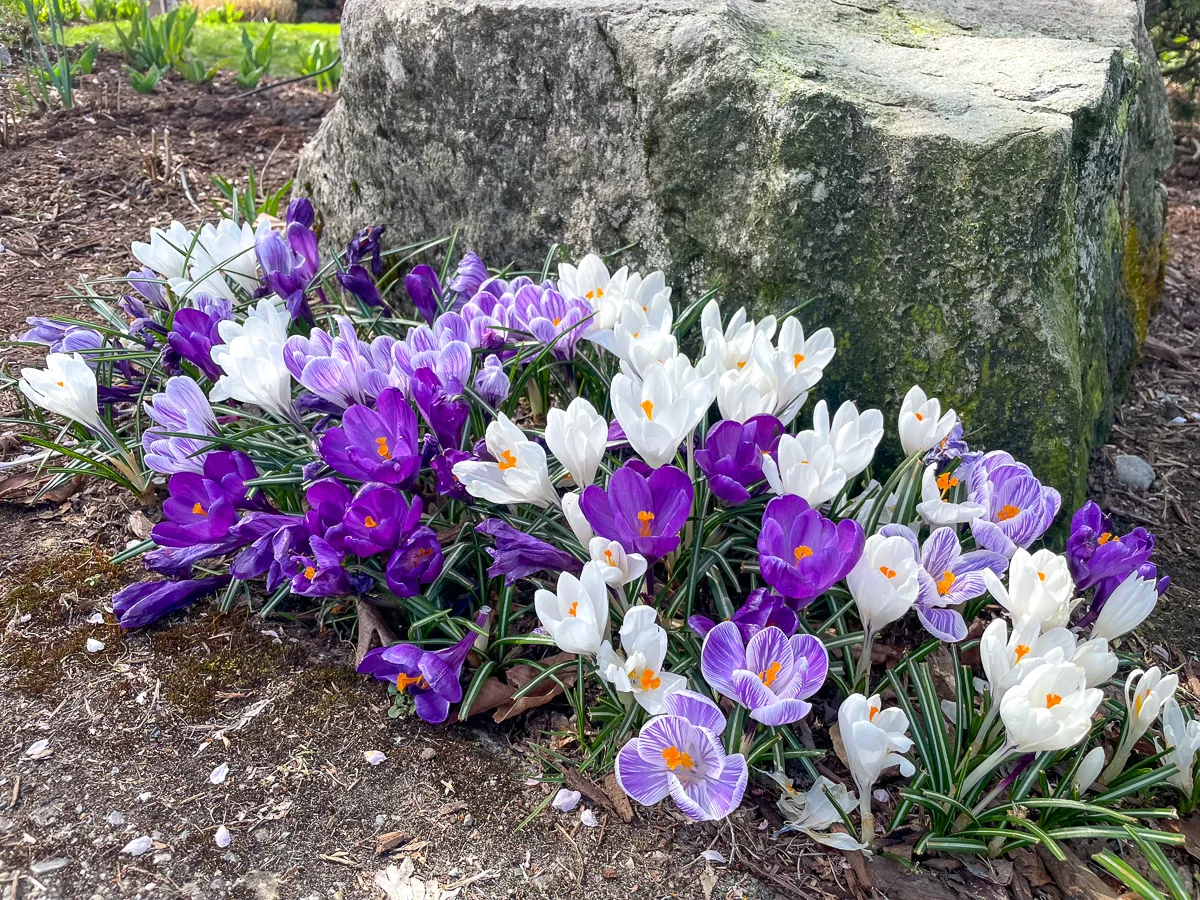
This year, I'm adding more groups of crocuses leading from the rock to the front of our fence. They'll receive a little more light than the north facing crocuses, and will extend that beautiful mix of color all along the sidewalk!
Planting crocus bulbs in the ground
Before you start planting, take a good look at your crocus corms. There should be a pointy side and a flat or indented side. Some, like this one, already have little shoots growing out of the top!
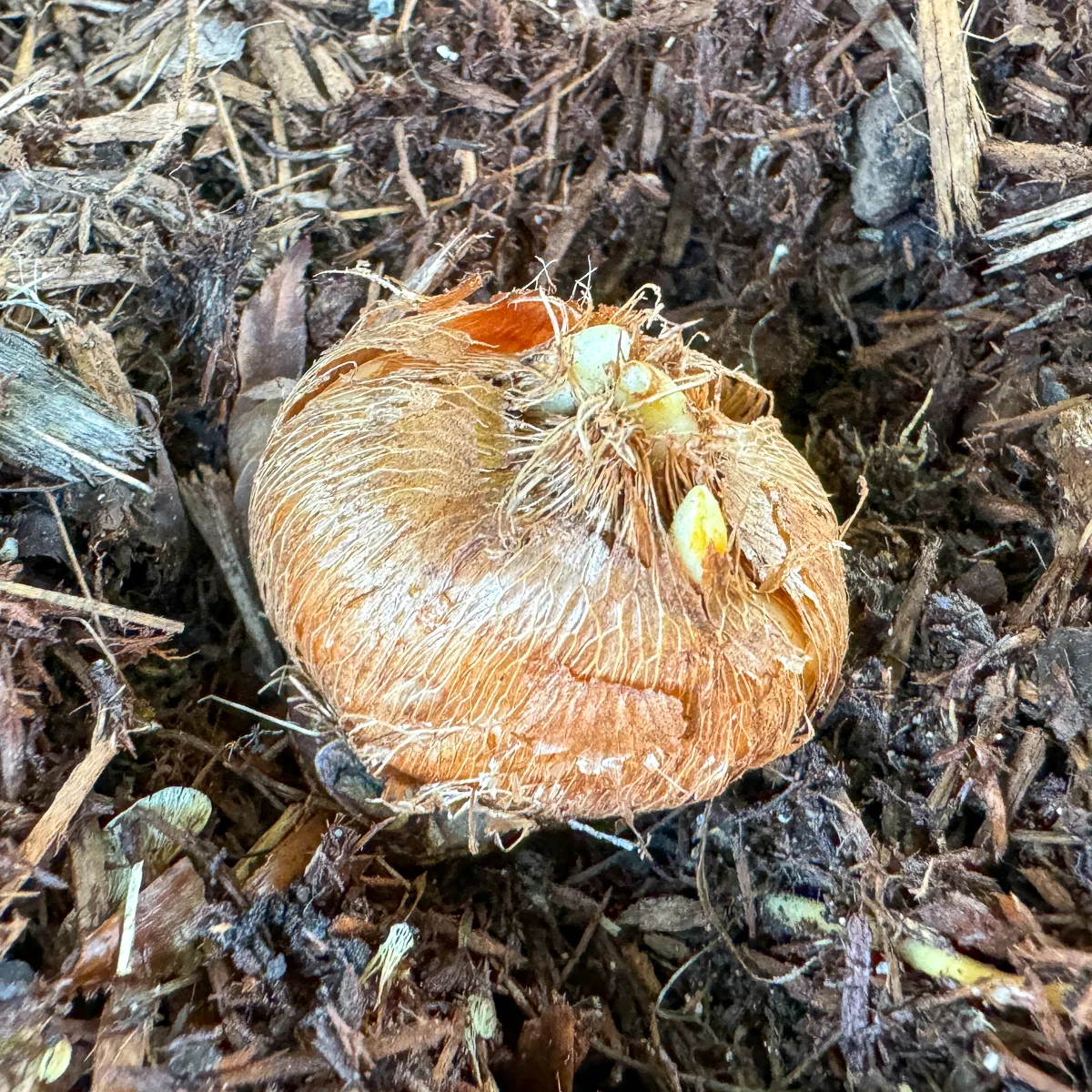
Always plant crocus bulbs with the pointy side facing up. If they're upside down, they may still grow, but the flowers may look a little odd or stunted.
Spacing
After choosing your location, consider your spacing. They multiply over time, so you don't want to plant them so close that they crowd each other out.
3-4 inches apart is ideal for crocus corms planted in the ground. Instead of a tape measure, I use the width of my fingers, which is about 3" across, as a guide.
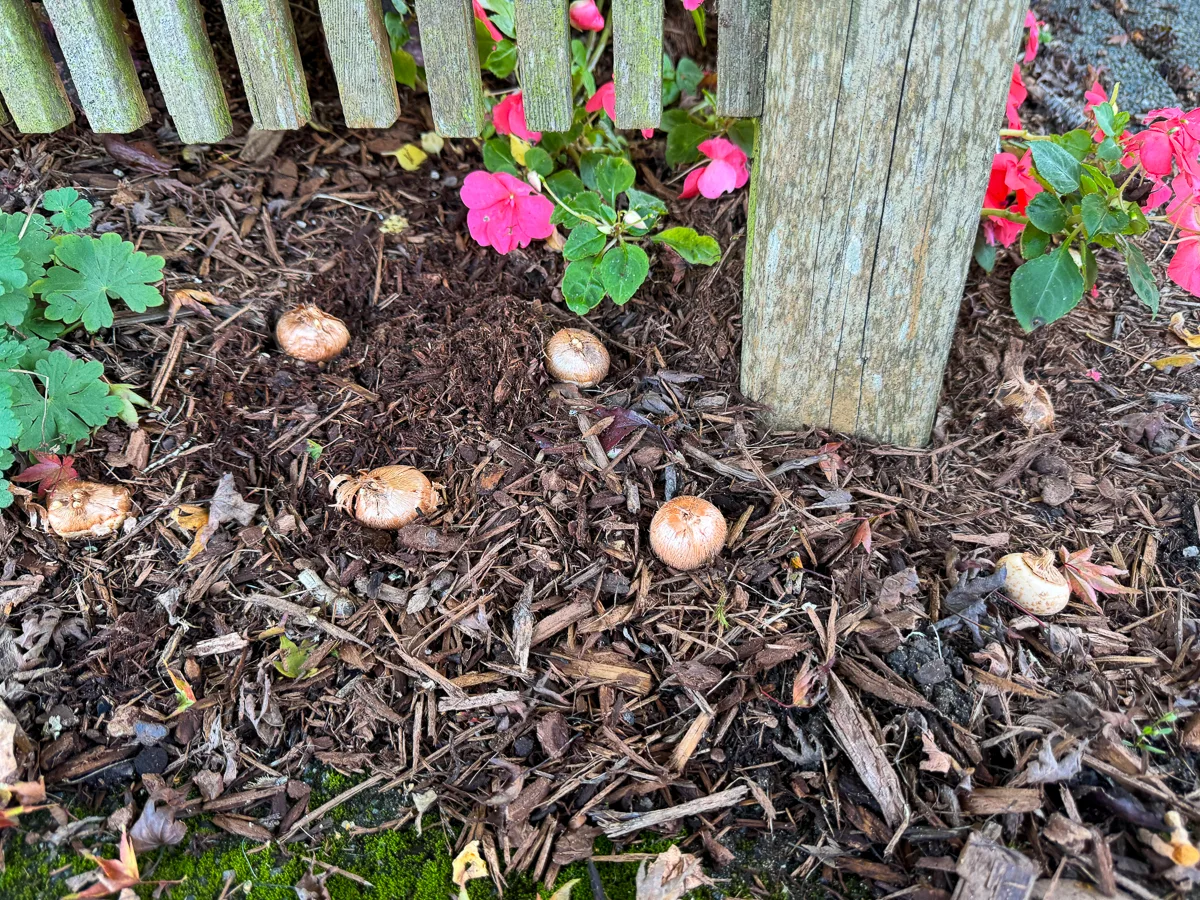
Depth
Crocus bulbs should be planted 3" deep. A good rule of thumb is to plant the bulb two to three times as deep as its height. Stack three corms on top of each other and measure against your finger to see how deep the hole should be.
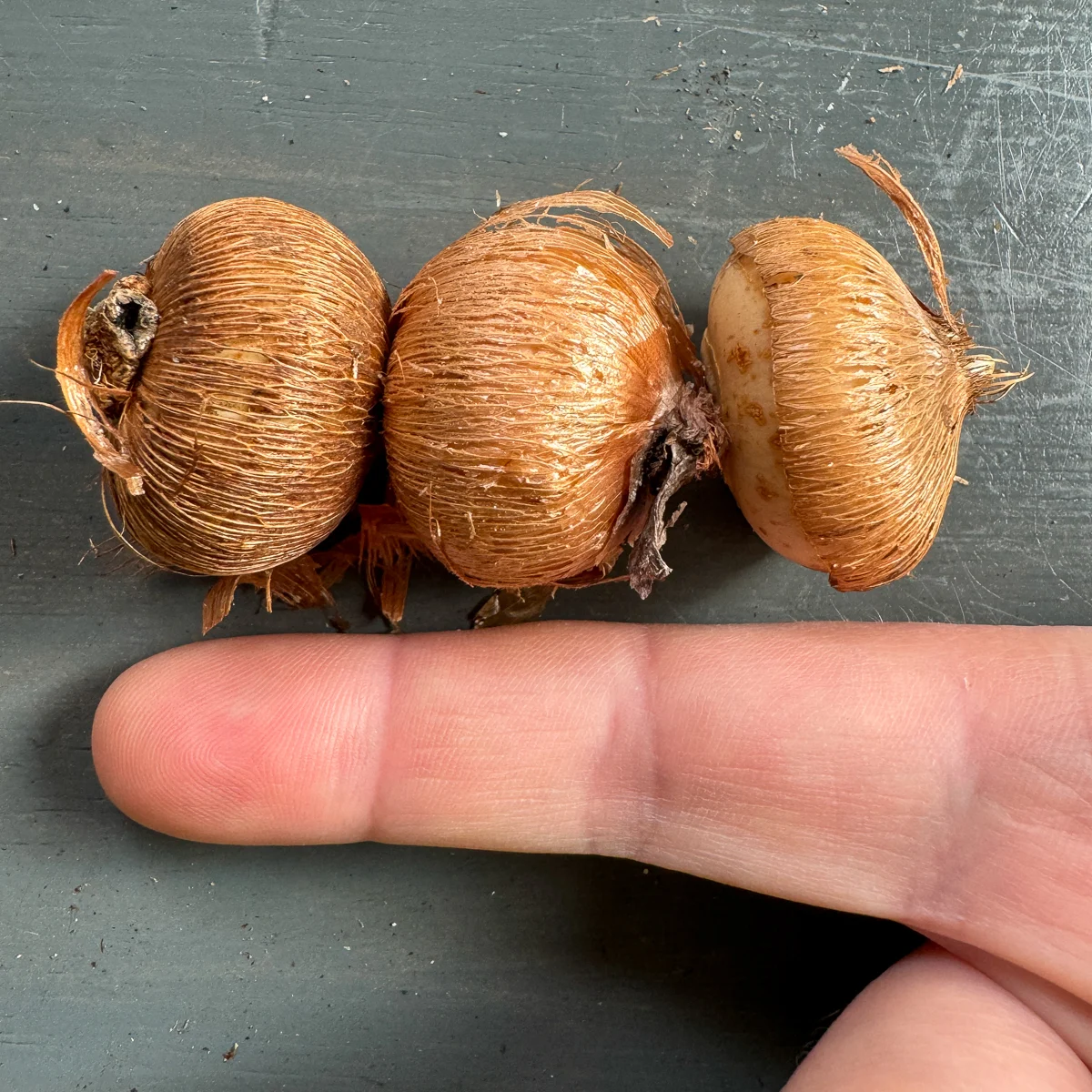
Use a trowel to pull back the soil, then use your finger to check the depth. Place the crocus bulb into the hole with the pointy side facing up, then cover it with soil.
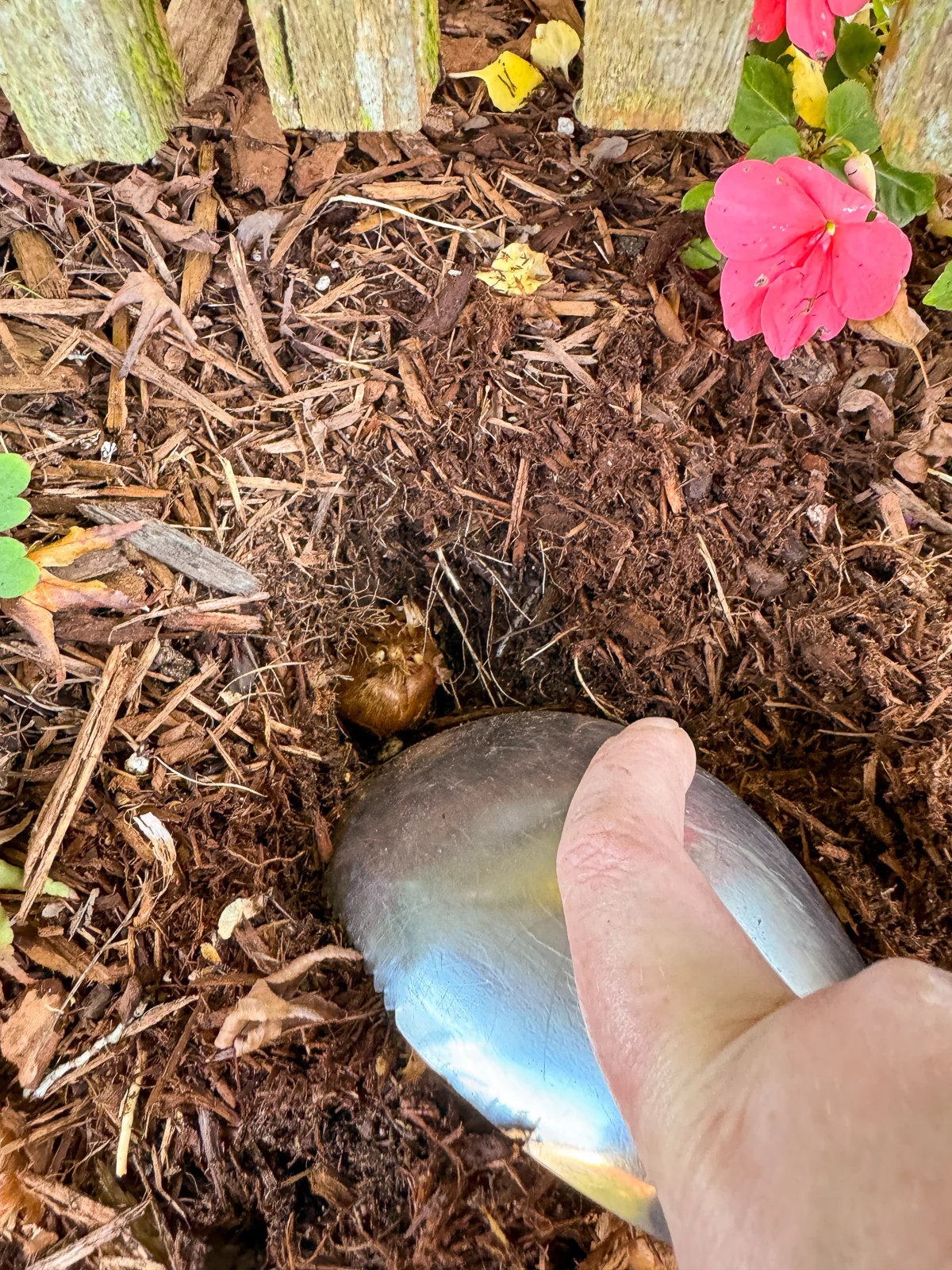
If you're planting your crocus corms in the lawn, you may want to consider using a bulb planter instead. This tool will cut a circular hole through the grass and root layer so you can pop the bulb underneath, then replace the turf without making a mess!
Planting crocus bulbs in pots
Crocus bulbs can thrive in containers and pots. I'm filling this railing planter box with the leftover corms from the front fence project. After the crocuses finish flowering, I'll plant them out in the garden so I can use this pot for summer flowers.
Choose a well-draining potting soil and make sure there are plenty of drainage holes in the bottom. Fill your pot with the soil, leaving at least four inches of space at the top.
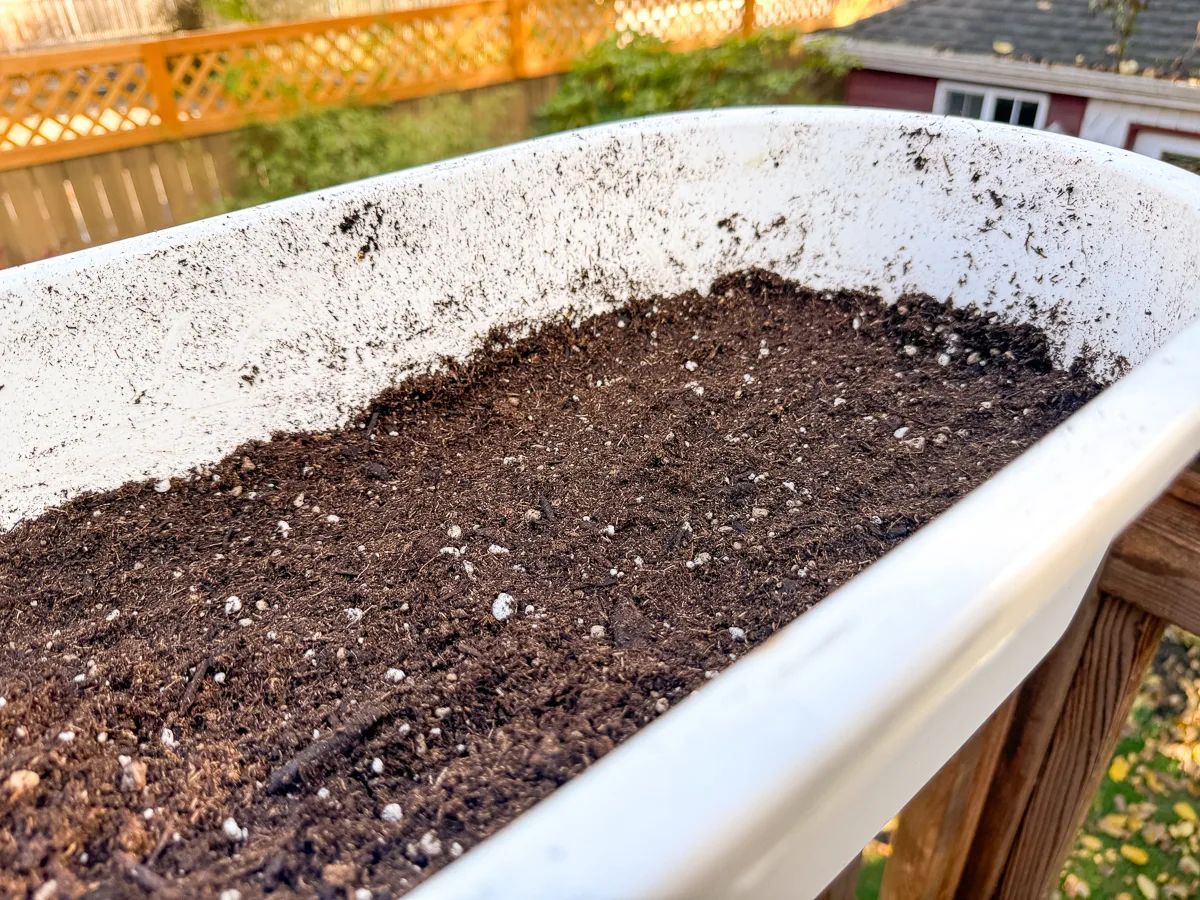
You can plant crocus bulbs in pots much closer together than you would in the ground, since they won't have a chance to multiply. Aim for about an inch between each bulb, or at least enough space so they're not touching.
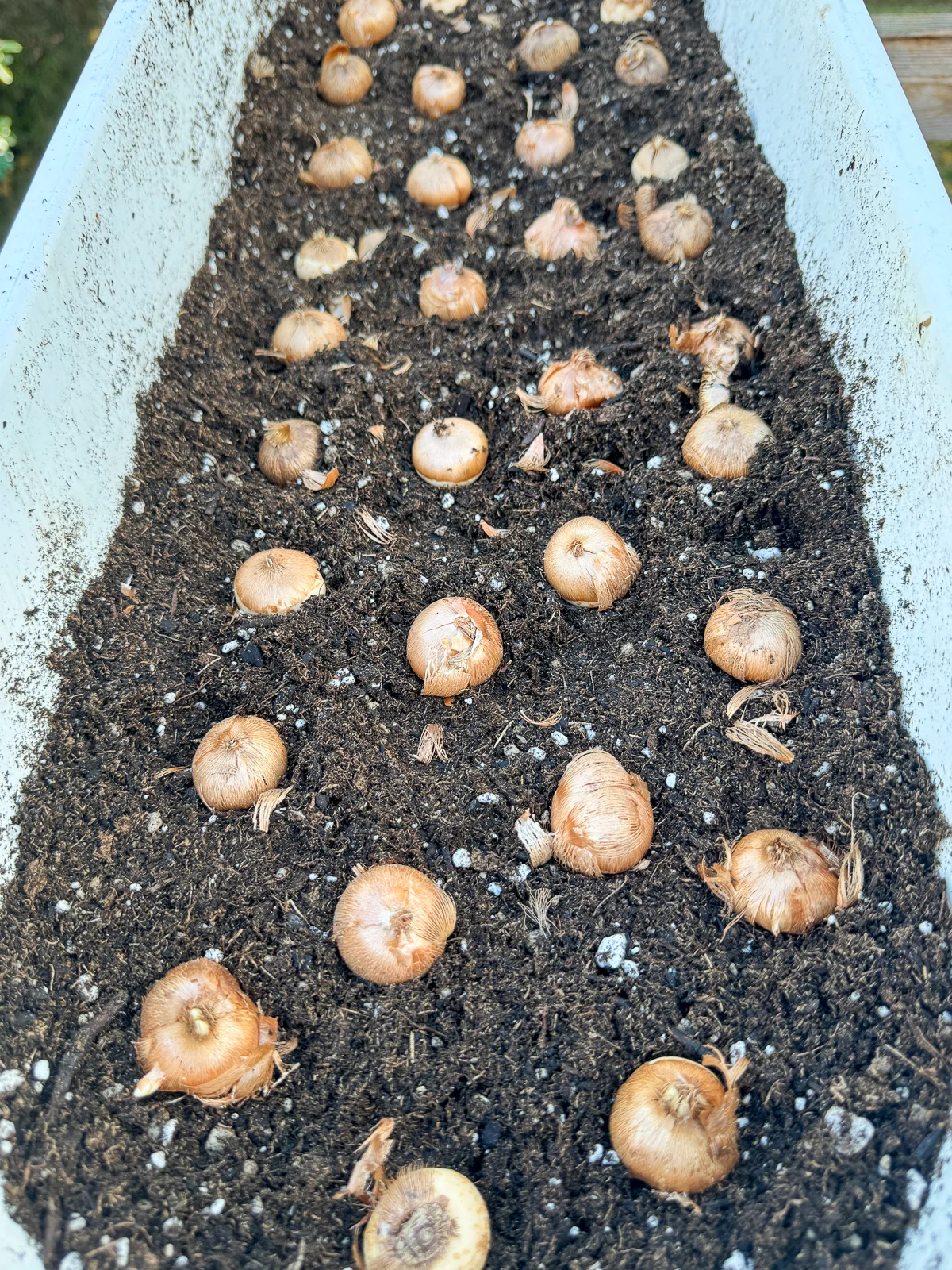
Cover them with more potting soil until the container is nearly full, leaving about an inch of space at the top. This will prevent soil from washing away in heavy rain.
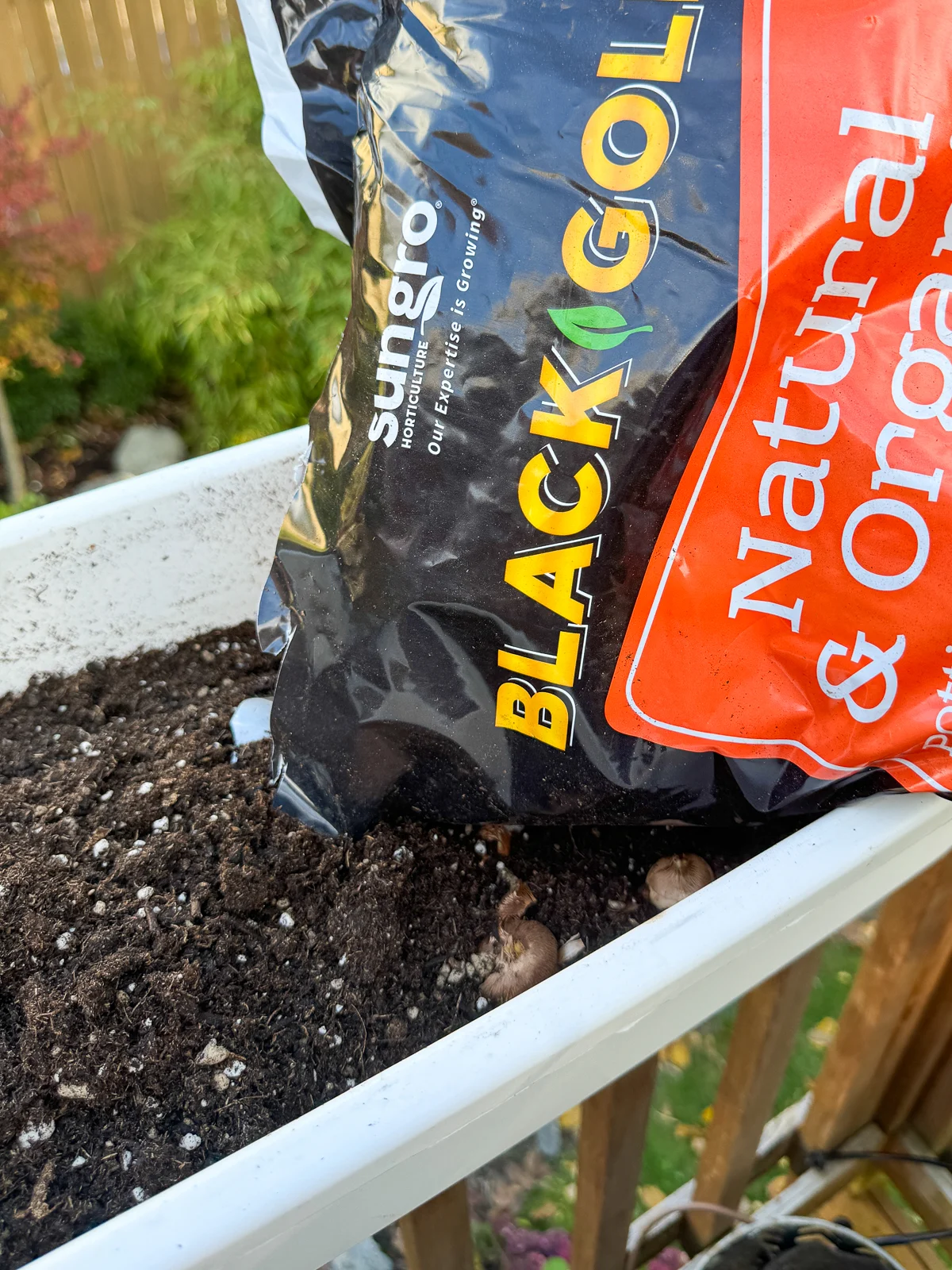
If you want to enjoy crocus blooms indoors, leave the pot outside until you start to see sprouts in late winter. Then bring it inside and place it in a sunny spot. The warmth will force the bulbs to bloom earlier than the ones out in the garden!
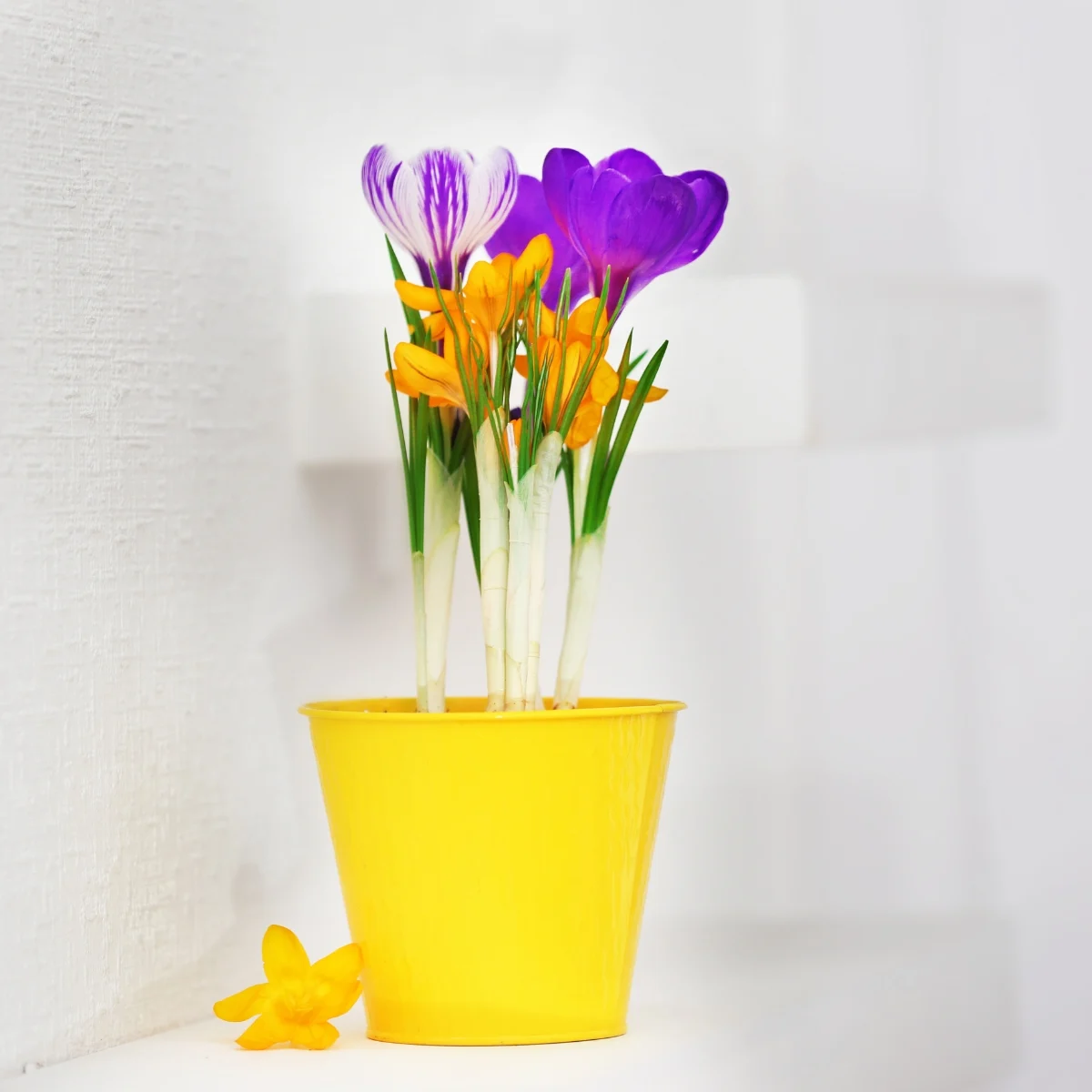
Now that you planted all your crocus bulbs, all you need to do is sit back and wait until spring!
Check out these other bulbs you can plant in fall!

